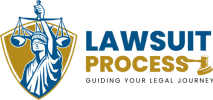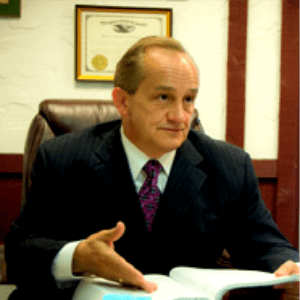A breach of fiduciary duty occurs when someone who has been entrusted with the responsibility to act in another person’s best interests fails to do so, often resulting in financial harm or other damages. This legal concept applies to various professional and personal relationships where one party places special trust and confidence in another, creating a legal obligation to act with the highest standards of care, loyalty, and good faith.
Understanding breach of fiduciary duty is crucial because these violations can occur in numerous contexts, from business partnerships and corporate boardrooms to relationships with financial advisors, attorneys, and even family members managing estates. When a fiduciary breaches their duty, the injured party may have grounds for a civil lawsuit to recover damages and hold the fiduciary accountable for their misconduct.
Table of Contents
- What Is a Fiduciary Duty?
- Who Owes Fiduciary Duties?
- Types of Fiduciary Duties
- Common Examples of Breach of Fiduciary Duty
- Elements Required to Prove a Breach
- Consequences and Legal Remedies
- Statute of Limitations
- How to Protect Yourself
- When to Consult an Attorney
- Final Thoughts on Breach of Fiduciary Duty
- Frequently Asked Questions about Breach of Fiduciary Duty
What Is a Fiduciary Duty?
A fiduciary duty is a legal obligation that requires one party (the fiduciary) to act in the best interests of another party (the beneficiary or principal). This relationship is founded on trust and confidence, where the fiduciary must prioritize the beneficiary’s interests above their own. The Cornell Law School defines fiduciary duty as one of the highest standards of care imposed by law.
Fiduciary relationships can arise through formal agreements, such as contracts or legal appointments, or they can develop naturally when one person places special trust in another’s expertise or judgment. The key characteristic distinguishing fiduciary relationships from ordinary business relationships is the level of trust and vulnerability involved, where one party relies on another’s specialized knowledge, skill, or position of authority.
Who Owes Fiduciary Duties?
Many professionals and individuals can owe fiduciary duties depending on the nature of their relationship with others. Some of the most common fiduciaries include:
- Corporate Directors and Officers: They owe fiduciary duties to the corporation and its shareholders
- Trustees: Those managing trusts must act in the best interests of beneficiaries
- Attorneys: Lawyers have fiduciary duties to their clients
- Financial Advisors: Investment advisors registered with the SEC must act as fiduciaries
- Real Estate Agents: In many states, agents owe fiduciary duties to their clients
- Executors and Administrators: Those managing estates have fiduciary duties to beneficiaries
- Partners: Business partners typically owe fiduciary duties to each other and the partnership
- Guardians: Those appointed to care for minors or incapacitated adults
Types of Fiduciary Duties
Fiduciary duties encompass several specific obligations that vary depending on the relationship and applicable laws. The primary duties include:
Duty of Care
The duty of care requires fiduciaries to act with the competence and diligence that a reasonably prudent person would exercise in similar circumstances. This means making informed decisions, conducting appropriate research, and seeking expert advice when necessary. For corporate directors, this involves the business judgment rule, which provides protection when decisions are made in good faith with reasonable care.
Duty of Loyalty
The duty of loyalty prohibits fiduciaries from putting their personal interests ahead of those they serve. This includes avoiding conflicts of interest, not competing with the beneficiary, and not using their position for personal gain. Fiduciaries must disclose any potential conflicts and, in many cases, obtain consent before proceeding with transactions that could benefit them personally.
Duty of Good Faith
Acting in good faith means being honest and fair in all dealings. Fiduciaries must not intentionally harm the beneficiary or act with reckless indifference to their interests. This duty overlaps with other fiduciary obligations but emphasizes the importance of honest intentions and ethical conduct.
Duty of Confidentiality
Fiduciaries often have access to sensitive information and must maintain confidentiality. This duty continues even after the fiduciary relationship ends. Unauthorized disclosure of confidential information can constitute a breach, especially if it causes harm to the beneficiary.
Duty of Disclosure
Fiduciaries must provide full and fair disclosure of all material facts that could affect the beneficiary’s interests. This includes revealing conflicts of interest, risks associated with investments or transactions, and any circumstances that might influence the beneficiary’s decisions.
Common Examples of Breach of Fiduciary Duty
Breaches of fiduciary duty can take many forms across different relationships and industries. Understanding common examples helps identify potential violations:
Corporate Breaches
- Directors approving excessive executive compensation that benefits themselves
- Officers diverting corporate opportunities for personal gain
- Board members trading on insider information
- Failing to oversee management, resulting in corporate losses
Financial Services Breaches
- Investment advisors recommending unsuitable investments to earn higher commissions
- Churning accounts to generate excessive fees
- Failing to diversify investments appropriately
- Not disclosing conflicts of interest when recommending products
Legal Professional Breaches
- Attorneys misappropriating client funds from trust accounts
- Representing conflicting interests without proper disclosure and consent
- Missing important deadlines that harm the client’s case
- Revealing confidential client information without authorization
Estate and Trust Breaches
- Executors selling estate property to themselves below market value
- Trustees making risky investments that violate the trust terms
- Delaying distributions to beneficiaries without justification
- Commingling trust assets with personal funds
Elements Required to Prove a Breach
To successfully pursue a breach of fiduciary duty claim, the plaintiff must typically prove four essential elements:
1. Existence of a Fiduciary Relationship
The plaintiff must demonstrate that a fiduciary relationship existed between the parties. This can be established through documentation such as contracts, corporate bylaws, trust documents, or evidence of the circumstances that created the relationship. Courts will examine the nature of the relationship and whether one party placed special trust and confidence in the other.
2. Breach of the Fiduciary Duty
The plaintiff must show that the fiduciary failed to fulfill one or more of their duties. This requires identifying the specific duty that was breached and providing evidence of how the fiduciary’s actions or inactions violated that obligation. Documentation, witness testimony, and expert opinions often play crucial roles in establishing the breach.
3. Causation
There must be a direct link between the breach and the harm suffered. The plaintiff needs to prove that the fiduciary’s breach was a substantial factor in causing their damages. This can be challenging when multiple factors contributed to the loss, but courts generally apply a “but for” test, asking whether the harm would have occurred but for the breach.
4. Damages
The plaintiff must demonstrate actual damages resulting from the breach. These can include financial losses, lost profits, diminished value of assets, or other quantifiable harm. In some cases, even without monetary damages, courts may award equitable remedies such as disgorgement of profits or removal of the fiduciary.
Consequences and Legal Remedies
When a fiduciary breach is proven, various legal remedies may be available to the injured party. The appropriate remedy depends on the nature of the breach, the type of harm suffered, and applicable state laws.
Monetary Damages
Compensatory damages aim to restore the plaintiff to the position they would have been in without the breach. This can include actual losses, lost profits, and consequential damages that were reasonably foreseeable. In cases involving intentional or egregious misconduct, courts may award punitive damages to punish the wrongdoer and deter similar behavior.
Disgorgement of Profits
Courts may require fiduciaries to return any profits they obtained through their breach. This remedy ensures that wrongdoers cannot benefit from their misconduct, even if the beneficiary cannot prove specific damages. The SEC frequently seeks disgorgement in cases involving securities law violations by investment professionals.
Equitable Remedies
Courts can order various equitable remedies, including:
- Constructive trusts to recover misappropriated property
- Injunctions to prevent ongoing or future breaches
- Removal of the fiduciary from their position
- Rescission of transactions tainted by the breach
- Accounting of profits and transactions
Professional Consequences
Beyond legal remedies, fiduciaries who breach their duties may face professional sanctions, including loss of professional licenses, regulatory penalties, and reputational damage that can effectively end their careers in positions of trust.
Statute of Limitations
The time limit for filing a breach of fiduciary duty claim varies significantly by state and the specific circumstances of the case. Generally, statutes of limitations range from two to six years from when the breach occurred or when it was discovered. Some important considerations include:
Discovery Rule
Many states apply a discovery rule, which starts the limitations period when the plaintiff discovered or reasonably should have discovered the breach. This is particularly important in cases where the fiduciary concealed their wrongdoing or where the harm was not immediately apparent.
Continuing Violations
When a breach involves ongoing conduct, courts may treat it as a continuing violation, with the statute of limitations not beginning until the wrongful conduct ceases. However, this doctrine is applied narrowly and depends on the specific facts of each case.
Tolling Provisions
Certain circumstances may toll (pause) the statute of limitations, such as:
- Fraudulent concealment of the breach by the fiduciary
- Minority or mental incapacity of the beneficiary
- Ongoing fiduciary relationship that prevents discovery
- Active litigation involving related claims
How to Protect Yourself
Whether you are a beneficiary seeking to protect your interests or a fiduciary aiming to fulfill your duties properly, taking proactive steps can help prevent breaches and their consequences.
For Beneficiaries
- Document Everything: Keep detailed records of all communications, transactions, and decisions involving your fiduciary
- Stay Informed: Request regular reports and accountings of how your assets are being managed
- Ask Questions: Don’t hesitate to seek clarification about decisions or transactions you don’t understand
- Monitor Performance: Regularly review statements and compare performance against appropriate benchmarks
- Understand the Relationship: Know what duties your fiduciary owes and what standards they must meet
- Get Second Opinions: When significant decisions arise, consider consulting independent advisors
For Fiduciaries
- Maintain Clear Documentation: Keep comprehensive records of all decisions, the reasoning behind them, and any advice sought
- Disclose Conflicts: Promptly reveal any potential conflicts of interest and obtain written consent when required
- Follow Established Procedures: Adhere to governing documents, industry standards, and internal policies
- Seek Expert Advice: Consult with attorneys, accountants, or other professionals when facing complex decisions
- Obtain Insurance: Maintain appropriate professional liability or directors and officers insurance coverage
- Communicate Regularly: Provide clear, timely updates to beneficiaries about important matters
When to Consult an Attorney
Determining when to seek legal counsel is crucial for both potential plaintiffs and defendants in fiduciary duty matters. Early consultation can help preserve rights, gather necessary evidence, and develop effective strategies.
Signs You May Need Legal Help
Consider consulting an attorney if you observe:
- Unexplained losses or poor performance of managed assets
- Lack of transparency or refusal to provide information
- Suspicious transactions benefiting the fiduciary
- Missed deadlines or failure to act on important matters
- Discovery of undisclosed conflicts of interest
- Misuse of confidential information
- Failure to follow governing documents or legal requirements
What to Bring to Your Attorney
When meeting with an attorney, provide:
- All relevant contracts, trust documents, or corporate records
- Financial statements and transaction records
- Correspondence with the fiduciary
- Timeline of events and concerns
- Documentation of any losses or damages
- Names and contact information of potential witnesses
Choosing the Right Attorney
Breach of fiduciary duty cases often involve complex legal and financial issues. Look for attorneys with:
- Experience in the specific type of fiduciary relationship involved
- Knowledge of relevant state and federal laws
- Track record of successful outcomes in similar cases
- Resources to handle complex litigation if necessary
- Understanding of the industry or context in which the breach occurred
Final Thoughts on Breach of Fiduciary Duty
Breach of fiduciary duty represents a serious violation of trust that can have significant financial and personal consequences for those affected. Understanding the nature of fiduciary relationships, the duties they entail, and the remedies available for breaches is essential for both fiduciaries and beneficiaries. Whether you are managing others’ interests or entrusting someone with your affairs, recognizing the signs of potential breaches and knowing when to seek legal assistance can help protect your interests and ensure accountability.
The complexity of fiduciary duty law, combined with the high stakes often involved, makes it crucial to act promptly when breaches are suspected. By maintaining vigilance, documenting interactions, and seeking appropriate professional guidance, parties can better navigate these challenging situations and work toward fair resolutions. Remember that each case is unique, and the specific facts, applicable laws, and available remedies will vary based on individual circumstances.
Frequently Asked Questions
1. What is the difference between breach of fiduciary duty and negligence?
Breach of fiduciary duty involves violating a special relationship of trust and confidence, requiring the fiduciary to act in the beneficiary’s best interests with utmost loyalty and care. Negligence, on the other hand, is a failure to exercise reasonable care that causes harm to another person, without necessarily involving a special relationship of trust. Fiduciary duty sets a much higher standard than ordinary negligence. While negligence requires showing that someone failed to act as a reasonable person would, breach of fiduciary duty requires showing that someone in a position of special trust violated specific duties like loyalty, care, or confidentiality. Additionally, the remedies for breach of fiduciary duty can be broader, including disgorgement of profits and equitable relief, whereas negligence claims typically result only in compensatory damages.
2. Can you sue for breach of fiduciary duty without damages?
In most cases, proving actual damages is necessary to succeed in a breach of fiduciary duty lawsuit. However, there are important exceptions. Courts may award nominal damages when a breach is proven but no actual financial harm occurred. More significantly, equitable remedies may be available even without monetary damages. These can include removal of the fiduciary from their position, disgorgement of any profits the fiduciary obtained through the breach, or an injunction to prevent future breaches. Some states also recognize that certain breaches, particularly those involving disloyalty or self-dealing, are actionable even without proof of damages because they undermine the integrity of the fiduciary relationship itself. The availability of remedies without damages often depends on state law and the specific nature of the fiduciary relationship.
3. How much does it cost to sue for breach of fiduciary duty?
The cost of pursuing a breach of fiduciary duty lawsuit varies significantly depending on the complexity of the case, the amount at stake, and the fee structure of your attorney. Initial filing fees typically range from $200 to $500, but attorney fees represent the largest expense. Many attorneys charge hourly rates between $250 and $600 or more, with complex cases potentially costing tens of thousands to hundreds of thousands of dollars. Some attorneys may work on a contingency basis, taking 25% to 40% of any recovery, particularly in cases with clear damages and strong liability. Additional costs include expert witnesses (often $300 to $800 per hour), depositions ($1,000 to $3,000 each), document discovery, and court reporter fees. Many attorneys offer free initial consultations to evaluate whether the potential recovery justifies the litigation costs.
4. What is the most common breach of fiduciary duty?
Self-dealing and conflicts of interest represent the most common breaches of fiduciary duty across various relationships. This occurs when fiduciaries use their position to benefit themselves at the expense of those they serve. In the corporate context, this might involve directors approving transactions that personally benefit them without proper disclosure or approval. For financial advisors, it often involves recommending investments that generate higher commissions rather than those best suited for the client. Estate trustees frequently breach their duties by purchasing estate property below market value or taking excessive compensation. Other common breaches include misappropriation of funds, failure to disclose material information, competing with the beneficiary, and using confidential information for personal gain. The prevalence of these breaches has led to strict regulations in many industries, particularly in financial services.
5. Is breach of fiduciary duty a crime?
Breach of fiduciary duty is primarily a civil matter, not a criminal offense. This means that victims typically seek monetary damages or equitable remedies through civil lawsuits rather than criminal prosecution. However, certain actions that constitute breach of fiduciary duty may also violate criminal laws. For example, embezzlement, theft of client funds, insider trading, or fraud can result in criminal charges in addition to civil liability. When a fiduciary’s conduct involves intentional theft, fraudulent schemes, or other criminal acts, prosecutors may file charges under state or federal criminal statutes. The Department of Justice actively prosecutes corporate executives and financial professionals who commit crimes while breaching their fiduciary duties. Even when criminal charges are filed, victims can still pursue separate civil actions to recover their losses.
6. Can you have a fiduciary duty without a contract?
Yes, fiduciary duties can and often do arise without any written contract or formal agreement. These relationships can develop through circumstances where one party places special trust and confidence in another, and the other party accepts this responsibility. Courts recognize that fiduciary relationships can be created by conduct, the nature of the relationship, or statutory requirements. For example, partners in a business venture may owe each other fiduciary duties even without a partnership agreement. Family members managing assets for elderly or incapacitated relatives often have fiduciary obligations despite no formal documentation. Professional relationships, such as those between doctors and patients or clergy and congregants, may create limited fiduciary duties in certain contexts. The key factors courts consider include the degree of trust placed in one party, any vulnerability or dependence of the other party, and whether one party has superior knowledge or expertise that the other relies upon.
7. What is the burden of proof for breach of fiduciary duty?
In civil cases for breach of fiduciary duty, the plaintiff typically must prove their case by a “preponderance of the evidence,” meaning it is more likely than not that the breach occurred. This is a lower standard than the “beyond a reasonable doubt” standard used in criminal cases. The plaintiff bears the initial burden of proving: (1) the existence of a fiduciary relationship, (2) the breach of a specific fiduciary duty, (3) causation linking the breach to harm, and (4) resulting damages. However, once the plaintiff establishes these elements, the burden often shifts to the fiduciary in certain situations. For instance, if the fiduciary engaged in self-dealing or received a benefit from the transaction, they may need to prove the entire fairness of their actions. This burden-shifting recognizes the difficulty beneficiaries face in obtaining information controlled by their fiduciaries and the special position of trust fiduciaries occupy.
8. Can an employee sue for breach of fiduciary duty?
Generally, employers do not owe fiduciary duties to their employees in typical employment relationships. Employment is usually considered an arms-length contractual relationship where each party acts in their own interest. However, there are important exceptions where employees may have valid breach of fiduciary duty claims. Employees who are beneficiaries of ERISA-governed benefit plans can sue plan administrators and trustees for breaching their fiduciary duties under federal ERISA law. In some states, employers may owe limited fiduciary duties regarding specific matters like managing employee retirement accounts or stock option plans. Additionally, if an employee is also a minority shareholder in a closely held corporation, they may be owed fiduciary duties in that capacity. High-level executives and officers typically owe fiduciary duties to their employer corporation, not the reverse, though they may have claims if they are also shareholders.
9. What is the discovery rule for breach of fiduciary duty?
The discovery rule delays the start of the statute of limitations period until the plaintiff discovered or reasonably should have discovered the breach of fiduciary duty. This rule recognizes that beneficiaries often cannot immediately detect breaches, especially when fiduciaries control information or actively conceal wrongdoing. Under the discovery rule, the limitations period begins when the plaintiff has actual knowledge of facts that would cause a reasonable person to investigate further, not necessarily when they know all the details or legal significance of the breach. Courts consider factors such as the plaintiff’s sophistication, access to information, and whether any red flags should have prompted investigation. The rule is particularly important in cases involving fraud, concealment, or breaches in ongoing fiduciary relationships where the beneficiary continues to trust the fiduciary. However, many states impose an outside limit (often 10 years) regardless of discovery, and the specific application varies significantly by jurisdiction.
10. Can you waive breach of fiduciary duty?
While some aspects of fiduciary duties can be modified or waived through clear agreements, complete waiver of all fiduciary duties is generally not permitted, especially for fundamental duties like good faith and loyalty. The ability to waive depends on the type of fiduciary relationship, applicable state law, and the specific duty involved. In business partnerships or LLCs, operating agreements may modify certain fiduciary duties, but courts often require explicit, clear language and may not enforce waivers they deem against public policy. Corporate bylaws or charter provisions in some states, particularly Delaware, may limit or modify director duties in specific circumstances. For trustees and other court-appointed fiduciaries, waiver options are typically very limited. Even when partial waivers are allowed, they must usually be knowing and voluntary, with full disclosure of conflicts, and cannot authorize intentional misconduct, bad faith, or violations of law. Prospective waivers of unknown future breaches are particularly scrutinized and often deemed unenforceable.






